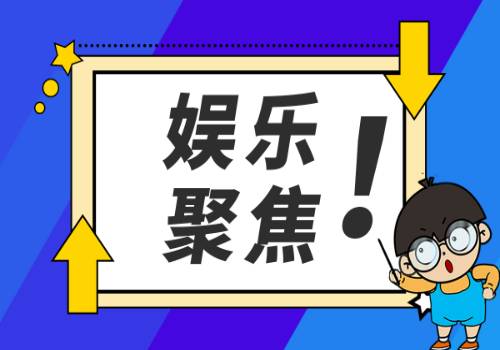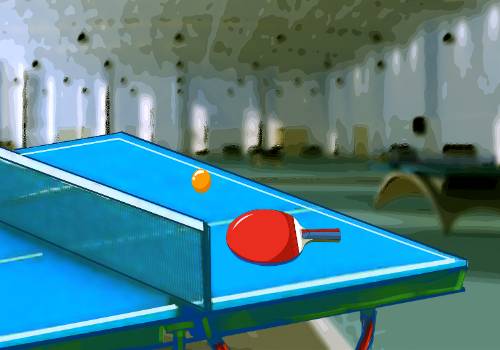2019年考研英语二阅读理解第一篇重点单词汇总+翻译 世界球精选
2019年考研英语二阅读理解第一篇重点单词汇总+翻译
 【资料图】
【资料图】
Unlike so-called basic emotions such as sadness, fear, and anger, guilt emerges a little later, in conjunction with a child’s growing grasp of social and moral norms. Children aren’t born knowing how to say “I’m sorry”, rather, they learn over time that such statements appease parents and friends----and their own consciences. This is why researchers generally regard so-called moral guilt, in the right amount, to be a good thing.
与所谓的悲伤、恐惧和愤怒等基本情绪不同,内疚出现得稍晚,同时孩子对社会和道德规范的理解也越来越强。孩子们天生就不知道如何说“对不起”,相反,随着时间的推移,他们知道,这样的陈述安抚了父母和朋友——以及他们自己的良心。这就是为什么研究人员普遍认为所谓的道德内疚感是一件好事。
In the popular imagination, of course, guilt still gets a bad rap. It evokes Freud’s ideas and religious hang-ups. More important, guilt is deeply uncomfortable---it's the emotional equivalent of wearing a jacket weighted with stones. Who would inflict it upon a child? Yet this understanding is outdated. “There has been a kind of revival or a rethinking about what guilt is and what role guilt can serve,” Vaish says, adding that this revival is part of a larger recognition that emotions aren’t binary feelings that may be advantageous in one context may be harmful in another. Jealousy and anger, for example, may have evolved to alert us to important inequalities. Too much happiness (think mania) can be destructive.
当然,在大众的想象中,内疚仍然会有坏名声。它唤起了弗洛伊德的思想和宗教障碍。更重要的是,内疚会让人感到非常不舒服——这在情感上相当于穿一件重着石头的夹克。谁会把它强加给一个孩子看呢?然而,这种理解已经过时了。瓦氏说:“有一种复兴,或者重新思考内疚是什么,”他补充说,这种复兴是一个更大的认识的一部分,即情感不是二元感觉,在一种环境中可能有利,在另一种环境中可能有害。例如,嫉妒和愤怒可能已经演变为提醒我们注意重要的不平等。太多的幸福(认为狂热)可能具有破坏性。
And guilt, by prompting us to think more deeply about our goodness, can encourage humans to atone for errors and fix relationships. Guilt, in other words, can help hold a cooperative species together. It is a kind of social glue.
而内疚,通过促使我们更深入地思考我们的善良,可以鼓励人类为错误赎罪和修复人际关系。换句话说,内疚可以帮助一个合作的物种团结在一起。这是一种社会粘合剂。
Viewed in this light, guilt is an opportunity. Work by Tina Malti, a psychology professor at the University of Toronto, suggests that guilt may compensate for an emotional deficiency. In a number of studies, Malti and others have shown that guilt and sympathy (and its close cousin empathy) may represent different pathways to cooperation and sharing. Some kids who are low in sympathy may make up for that shortfall by experiencing more guilt, which can rein in their nastier impulses. And vice versa: High sympathy can substitute for low guilt.
从这个角度来看,内疚是一个机会。多伦多大学的心理学教授蒂娜·马尔蒂的研究表明,内疚可以弥补情感缺陷。在一些研究中,Malti和其他人已经表明,内疚和同情(以及它的近亲同理心)可能代表了合作和分享的不同途径。一些同情心较低的孩子可能会通过经历更多的内疚来弥补这一不足,这可以控制他们更令人讨厌的冲动。反之亦然:高同情心可以代替低罪恶感。
In a 2014 study, for example, Malti and a colleague looked at 244 children, ages 4, 8, and 12. Using caregiver assessments and the children’s self-observations, they rated each child’s overall sympathy level and his or her tendency to feel negative emotions (like guilt and sadness) after moral transgressions. Then the kids were handed stickers and chocolate coins, and given a chance to share them with an anonymous child. For the low-sympathy kids, how much they shared appeared to turn on how inclined they were to feel guilty. The guilt-prone ones shared more, even though they hadn’t magically become more sympathetic to the other child’s deprivation.
例如,在2014年的一项研究中,马尔蒂和他的一个同事观察了244名4岁、8岁和12岁的儿童。通过照顾者的评估和孩子的自我观察,他们对每个孩子的整体同情水平和他或她在道德违背后感到负面情绪(如内疚和悲伤)的倾向进行了评分。然后孩子们拿了贴纸和巧克力硬币,并有机会与一个匿名的孩子分享。对于那些缺乏同情心的孩子来说,他们分享了多少东西,似乎取决于他们感到内疚的倾向。那些容易感到内疚的人分享得更多,尽管他们并没有神奇地变得更同情另一个孩子的被剥夺。
“That’s good news.”Malti says. “We can be prosocial because of the empathetic proclivity, or because we caused harm and we feel regret.”
“这是个好消息。“马尔蒂说。“我们可以因为同情亲社会,或者因为我们造成了伤害,我们感到后悔。”
更多精彩内容请关注微信公众号【晓看天色暮看云ym】
unlikeprep. 不像;与…不同;与…平时不同
adj. 不同的,不像的
basicadj. 基础的,根本的;最初级的,起码的;碱性的
emotion n. 情绪;强烈的情感
复数:emotions
suchadj. 这样的;类似的
pron. 这样
sadness n. 悲哀,忧伤,忧愁,悲哀;令人悲哀或忧伤的事物;愁眉苦脸,心境恶劣,心情恶劣;认真
fear n. 恐惧;担心;担忧;可能性
v. 害怕;担心;(替…)担心
过去分词:feared
现在分词:fearing
过去式:feared
第三人称单数:fears
guilt n. 有罪,犯罪行为,罪恶;[法律] 轻罪,过失;内疚,知罪;自责
形容词:guiltless
emerge v. 出现,兴起;摆脱;暴露;露头
过去分词:emerged
现在分词:emerging
名词:emergence
过去式:emerged
第三人称单数:emerges
lateradv. 较晚地;以后,过后;后来;随后
adj. 后来的;以后的;接近末期的;晚年的
conjunction n. 连词;结合,同时发生
复数:conjunctions
grasp v. 抓紧;理解;急忙抓住
n. 紧抓;掌握;理解;力所能及
过去分词:grasped
现在分词:grasping
过去式:grasped
第三人称单数:grasps
moral n. 道德;寓意
adj. 道德的;道义上的;有道德的;能辨是非的
复数:morals
norm n. 标准;规范;准则;(劳动)定额
复数:norms
statementn. 说明;声明;评估报告;结算单
过去分词:statemented
现在分词:statementing
过去式:statemented
复数:statements
第三人称单数:statements
appease v. 平息;安抚,抚慰
过去分词:appeased
现在分词:appeasing
名词:appeasement
过去式:appeased
第三人称单数:appeases
consciencen. 良心,良知;内疚;信仰
复数:consciences
generally adv. 笼统地;通常地;普遍地
regardv. 认为,看待;注视
n. 尊敬,敬佩;关注;问候,致意
过去分词:regarded
现在分词:regarding
过去式:regarded
复数:regards
第三人称单数:regards
amount n. 金额;数量,数额;程度
v. 共计
复数:amounts
popular adj. 受喜爱的;讨人喜欢的;通俗的;普遍的;民众的
imaginationn. 想象(力);幻想物;创造力
复数:imaginations
course n. 课程,讲座;航向;方针;行为方式;进程;疗程;一道菜;高尔夫球;比赛场地;泳道;江河流向;河道;层
v. 快速流动
现在分词:coursing
过去式:coursed
复数:courses
第三人称单数:courses
rapvt.& vi. 突然说出;(公开地)严厉批评;突然大声说出;连续敲叩
n. (轻快的)敲击(声);说唱音乐;说唱歌;速度快的谈话
过去分词:rapped
现在分词:rapping
过去式:rapped
复数:raps
第三人称单数:raps
equivalentadj. 相等的,相同的
n. 等同物;对应物
名词:equivalence
复数:equivalents
wear v. 穿,戴;蓄留;流露(表情);磨损,用旧;耐用
n. (特定时候或场合穿的)服装;穿戴;耐用性,使用率;磨损
过去分词:worn
现在分词:wearing
过去式:wore
复数:wears
第三人称单数:wears
jackn. 千斤顶;[信]插孔,插座;男人;纸牌中的J
adj. (对…)厌倦,厌烦
复数:jacks
stonen. 石头;宝石;矿石;(膀胱或肾脏中的)结石
vt. 向扔石块;用石头铺;以石掷向;除(水果的)硬核
现在分词:stoning
过去式:stoned
复数:stones
第三人称单数:stones
outdated adj. 过时的,旧式的,落伍的,不流行的
v. 使过时(outdate的过去式和过去分词)
revivaln. 复活;再生,再流行,再生效;复兴;(老戏多年后)重新上演
复数:revivals
rethinkvt.& vi. 重新考虑或再想
过去分词:rethought
现在分词:rethinking
过去式:rethought
第三人称单数:rethinks
psychology n. 心理(学);思想
复数:psychologies
recognitionn. 认识,识别;承认;赞赏
复数:recognitions
binary adj. 双重的,由两个东西组成的;二态的;二元的;二进制的
advantageousadj. 有利的;有好处的
副词:advantageously
context n. (想法、事件等的)背景;上下文
复数:contexts
harmfuladj. 有害的
副词:harmfully
Jealousy[电影]杂耍班
evolvev. (使)逐渐形成/演变;进化
过去分词:evolved
现在分词:evolving
过去式:evolved
第三人称单数:evolves
alertadj. 警觉的,警惕的;意识到的
n. 警惕,戒备;警报
v. 向…报警;使警觉,使戒备;使认识到
过去分词:alerted
现在分词:alerting
名词:alertness
过去式:alerted
复数:alerts
第三人称单数:alerts
importantadj. 重要的;有声望的
副词:importantly
比较级:more important
最高级:most important
destructive adj. 破坏性的;毁灭性的
副词:destructively
名词:destructiveness
prompt adj. 敏捷的;迅速的;立刻的;准时的
v. 促使;导致;鼓励;提示
n. 激励;提示符;提词;提示
adv. 准时地
过去分词:prompted
现在分词:prompting
名词:promptness
过去式:prompted
第三人称单数:prompts
encourage v. 鼓励;使有希望;劝说;促进
形容词:encouraging
副词:encouragingly
过去分词:encouraged
现在分词:encouraging
过去式:encouraged
第三人称单数:encourages
goodness n. 良好;善良;精华;上帝
errorn. 错误,过失
复数:errors
cooperative adj. 合作的,协作的;配合的
n. 合作社,合作机构
副词:cooperatively
复数:cooperatives
glue vt. 胶合;紧附于
n. 胶水;胶粘物;粘聚力
过去分词:glued
现在分词:glueing;gluing
过去式:glued
复数:glues
第三人称单数:glues
viewn. 看法,态度;观看,视线;景色;风景画/照;显示方式
v. 把…视为,看待;(观)看,查看
过去分词:viewed
现在分词:viewing
过去式:viewed
复数:views
第三人称单数:views
opportunity n. 机会;时机
复数:opportunities
compensate v. 补偿,赔偿;弥补;抵消
形容词:compensatory
过去分词:compensated
现在分词:compensating
过去式:compensated
第三人称单数:compensates
deficiencyn. 缺乏,不足;缺陷
复数:deficiencies
sympathy n. 同情;支持,赞同;志同道合
复数:sympathies
representv. 代表;象征;维护…的利益;相当于;描绘;正式提出
过去分词:represented
现在分词:representing
过去式:represented
第三人称单数:represents
shortfall n. 缺少;不足之数;亏空
复数:shortfalls
experience n. 经验;经历;往事
v. 经历;感受
过去分词:experienced
现在分词:experiencing
过去式:experienced
复数:experiences
第三人称单数:experiences
impulsen. 凭冲动行事;突如其来的念头;[电子]脉冲;[医]冲动,搏动
复数:impulses
substitutev. 用…代替
n. 代替者;替代物;替补运动员
过去分词:substituted
现在分词:substituting
过去式:substituted
复数:substitutes
第三人称单数:substitutes
caregiver n. 照料者,护理者
复数:caregivers
assessment n. 看法;评估;鉴定;评定;核定的付款额;估价
复数:assessments
self-observation n. 对自身外貌的观察; 自省,内省
overall adj. 全面的;总体的
adv. 全部;总体上
n. 外套;工装服
复数:overalls
tendency n. 倾向;趋势;偏好;极端势力
复数:tendencies
negativeadj. 消极的;否定的;负的;阴极的
v. 拒绝;否定
n. 底片;(化验或科学试验中的)阴性结果;坏的事情
副词:negatively
过去分词:negatived
现在分词:negativing
过去式:negatived
复数:negatives
第三人称单数:negatives
transgression n. 违反,违法,罪过
名词:transgressor
复数:transgressions
动词:transgress
chocolate n. 巧克力;巧克力糖;巧克力色
复数:chocolates
coinn. 硬币
v. 创造(新词语);很快地赚(钱)
过去分词:coined
现在分词:coining
过去式:coined
复数:coins
第三人称单数:coins
anonymousadj. 匿名的,不知名的;不记名的;没有特色的
副词:anonymously
appear v. 看来,好像;出现;出演;起源,首次使用;出版,广播;演出;抵达;出庭
过去分词:appeared
现在分词:appearing
过去式:appeared
第三人称单数:appears
turn v. (使)转动,旋转;转身,扭转;翻(转);转弯;朝着;释放;(使)变成;到达(某一年龄或时间);(潮)涨/落;求助于;
n. 转变;转动;转弯(处);弯道;轮班,次序;散步;世纪之交/新年伊始;(疾病)瞬间发作
过去分词:turned
现在分词:turning
过去式:turned
第三人称单数:turns
inclinevt.& vi. (使)倾斜,弄斜;(使)偏向,倾向于;(使)认为;点(头)(以示同意、打招呼等)
n. 斜坡;斜面;坡度;倾斜
过去分词:inclined
现在分词:inclining
过去式:inclined
复数:inclines
第三人称单数:inclines
guilty adj. 内疚的;有罪的
副词:guiltily
比较级:guiltier
最高级:guiltiest
magical adj. 魔力的,不可思议的,迷人的;神;幻;神奇
副词:magically
sympathetic adj. 同情的;赞同的;招人喜爱的
副词:sympathetically
deprivation n. 剥夺;丧失;匮乏
复数:deprivations
prosocial adj. 亲社会的,忠实(或拘泥)于既定社会道德准则的
regretv. 后悔,对…感到遗憾/抱歉
n. 遗憾,失望
过去分词:regretted
现在分词:regretting
过去式:regretted
第三人称单数:regrets
更多精彩内容请关注微信公众号【晓看天色暮看云ym】
标签:
上一篇:为新能源产业输送绿色动力
下一篇:最后一页
- 2019年考研英语二阅读理解第一篇重点单词汇总+翻译 世界球精选
- 为新能源产业输送绿色动力
- 观热点:青岛有哪些职业学校比较好_青岛有哪些职业学校
- 全球视点!夜店的主演是谁_夜店演员表
- 当前速读:员外是什么意思在古代_员外是什么意思
- 植物大战怪兽玩具(植物大战怪物2) 天天快看点
- 美国PMI数据公布后 美股三大股指跌幅扩大
- 南水北调中线局是什么级别单位_南水北调中线局_焦点速递
- 【焦点热闻】高温仍将持续 北京市教委:可根据实际情况减课或停课
- 【全球新要闻】桥香园_桥香园和建新园米线哪个正宗
- 约翰尼德普的十部电影_约翰尼德普的经典电影 世界热门
- 一艺校女生疑遭霸凌,警方通报!_天天热门
- 北大光华联合腾讯举办圆桌论坛,探讨大模型产业落地路径
- 变色硅胶干燥剂商品报价动态(2023-06-23)
- 环球即时:中国中免H股盘中再创上市以来新低 机构称已具性价比后续或超预期
- 国产机的尴尬:618大家2799买4年前的iPhone11,也不买国产 世界快播报
- 世界快报:沉默的十字军bug刷法(沉默的十字军到底什么怪掉)
- 中国移动 5 月 5G 套餐用户数突破 7 亿
- 完善老年健康体系建设 加强失能老人照护 把医院“病床”搬回家_全球快播
- “定安粽娘”劳务品牌打造就业“金名片” 每日视讯
- 九阴真经少林厉害吗贴吧_九阴真经少林厉害吗_实时
- 如何画飞机_全球观速讯
- 暴雨黄色预警!7省区部分地区有大到暴雨 浙赣粤等部分地区大暴雨
- 世界观点:【有声散文】陈春花:美是一种和谐的比例结构
- 经济日报:要利用科技赋能金融监管 打造数字智能监管体系|即时看
- 环球热议:新宝马X5和X6特别版获得运动型升级
- 促甲状腺素>100.000是啥意思_0 0是啥意思
- 80后女星因老公瘫痪经济陷困难,毅然转行做物流,亲自搬货很卖力 独家焦点
- 范明林_关于范明林的简介 世界快资讯
- 海口超3.4万人报名中考,共21人审核不合格,4所学校存在违法违规行为
- 天津至北京大兴国际机场铁路全线主体完工
- 环球热议:应急管理部工作组在宁夏银川市指导燃气爆炸事故应急处置工作
- 热门看点:轰天震地!乌克兰发射美国大威力弹药:数千俄军特种兵火线反击
- 金州大桥项目完成总工程量的80% 预计年底建成通车|环球快播报
- 焦点信息:汉化工具(汉化工具软件)
- 从苏州坐地铁去上海:打卡苏州地铁11号线|播资讯
- 土耳其计划再建3座核电站,至少12个机组 全球播报
- 当前热点-刑警2010国语百度云_刑警2010国语
- “暖到心窝”!外卖小哥们聚集在一起,做了这些事…… 当前独家
- 青海水稻田如何修建
- 天天快看点丨跨省招生285人!2023年长三角示范区中高职跨省贯通招生开始啦
- 全球热点评!WhatsApp现在提供静音未知来电者和隐私检查功能
- 短讯!不差钱:宁德时代拟拿0.3%净资产向员工提供无息借款,支持购自住商品房
- 南阳市基础教育教学研究室地址 南阳市基础教育二科
- 贵州双龙航空港经济区小碧乡:山歌普法 “声”入人心
- 光遇搓澡巾复刻先祖完整兑换图一览
- 端午节当天,河北省血液中心所有献血点停采一天-焦点日报
- 环球今日讯!我和梯田共成长
- 图知道|热浪来袭,请查收这份健康防护指南
- “减少内卷互不挖人,如有违约加倍反制”,四大养猪巨头刷屏|天天百事通
-

预售价22.5万元 小鹏G6将于6月29日晚正式上市|环球新要闻
日前,小鹏汽车发布消息称,SEPA2 01扶摇技术架构首款战略车型小鹏G6将
-

全球热推荐:预计1亿人次出游 燃情“端午经济”
随着端午假期临近,航空、铁路出行带热“端午经济”,并进一步推动旅游
-

全球头条:美图秀秀如何修改照片大小50kb(美图秀秀如何修改照片大小kb)
图秀秀如何修改照片大小50kb,美图秀秀如何修改照片大小kb这个问题很多
-

赤峰红山:印发气象灾害应急预案|热消息
6月15日,内蒙古自治区赤峰市红山区人民政府办公室印发《红山区气象灾
-

mt和dct的区别_dct和dsg的区别 每日时讯
1、区别:DCT是一种把手动变速箱的变速工作自动化的AMT变速箱,其特点
-

速递!科大国创:拟转让控股子公司国创智能部分股权
目前国创智能相关产品已实现初步市场化应用,但仍处于初创期,业绩持续
-

【全球快播报】20个必看的日本动画电影 50部最重要的日本动画电影
hello大家好,我是城乡经济网小晟来为大家解答以上问题,20个必看的日
-

首届京津冀生态产业创新发展大会今天举行 环球播报
今天,由京津冀三地环保部门联合举办的生态产业创新发展大会,在滨海新
-

长沙南站派出所执勤大队长冯中伟:旅客平安就是他的最大心愿 每日热讯
冯中伟热情帮助旅客。冯中伟盯控站区,维护旅客出站秩序。今年端午
-

EDG2-0击败AL,拿下第3胜!Uzi下路压制,FoFo伤害爆炸|环球短讯
EDG2-0击败AL,拿下第3胜!Uzi下路压制,FoFo伤害爆炸LPL夏季赛EDG和AL
-

川大河
1、川大河村CUANDAHECHN位于集镇西北。2、辖5个村民小组,总面积2 80平
-

每日聚焦:胜宏科技:公司目前暂无IC载板产品量产
每经AI快讯,有投资者在投资者互动平台提问:董秘您好!请问贵公司在IC
-

1999年重阳节敬老邀请函的制作
在日常生活中,当我们使用数字设备时,我们会遇到各种各样的问题,其中
-

现代汽车将出售2家中国工厂 因中国市场销量低迷 全球热推荐
易车讯6月20日,韩国现代汽车宣布出售中国的2家工厂。现代与北汽的合资
-

天天热点评!新希望(000876)6月21日主力资金净卖出1916.76万元
截至2023年6月21日收盘,新希望(000876)报收于11 71元,下跌1 43%,换
-

热门看点:怎么做蛋炒饭最好吃 ?学会了刷爆朋友圈
用料大米饭一碗欧福全蛋液150g盐适量做法步骤1、准备隔夜饭2、下锅炒热
-

港股核电板块异动拉升
港股核电板块异动拉升,哈尔滨电气涨超2%,中广核矿业、上海电气(6017
-

一场奇幻之旅,MUFASA沐飒伴你入住轮上智能起居室丨新车
车,定将成为生活中最可靠的伙伴。深耕国内市场超过20年,北京现代收获
-

中端机红米Note 12 Turbo降价至2099元 性能均衡抢眼!
【ITBEAR科技资讯】6月21日消息,Redmi红米手机官方宣布,他们的Note12
-

真急了?瑞典为“入约”找理由:不排除俄攻击可能
00:09据德国新闻电视频道网站6月19日报道,瑞典认为“不能排除”俄罗斯
-

魔鬼鱼_mogii
1、拉进厕所先奸后杀;完事丢进茅坑提上裤子子走人。本文到此分享完毕
-

VDA6.3 常见问题-P6部分 天天亮点
字数统计:6741字预计阅读时间:约13分钟VDA6 32023是德系审核供应商的
-

最新快讯!6月20日罗曼股份(605289)龙虎榜数据:游资炒股养家上榜
沪深交易所2023年6月20日公布的交易公开信息显示,罗曼股份(605289)
-

不能初始化directsound怎么解决_不能初始化directsound
1、说明你现在的声卡驱动没装,或者系统的音频服务没有打开,重装一下
-

京东旧将闫小兵回归,入职综合部
京东旧将闫小兵终于回归。《华尔街科技眼》独家获悉,近日闫小兵目前已
-

【世界新视野】发票真伪查证(真假发票查询系统)
来为大家解答以下的问题,票真伪查证,真假发票查询系统这个很多人还不
-

医院乱收费怎样样告_世界热点
首先,将病历,发票收据之类的全部保存好。这些都是依据、凭证。其次,
-

40寸电视尺寸多少毫米_40寸电视的具体尺寸
40寸电视尺寸要看具体的电视型号来确定,一般来说,40寸电视长宽分别约
-

金春股份:6月20日获融资买入97.08万元_焦点快报
同花顺数据中心显示,金春股份6月20日获融资买入97 08万元,占当日买入
-

当前快播:港府张贴收回及征用土地公告以进行樟木头公营房屋发展计划
观点香港网讯:6月21日,香港地政总署今日公告,收回土地公告及征用土
-

当前视讯!6月20日基金净值:中海环保新能源混合最新净值2.011,涨0.15%
6月20日,中海环保新能源混合最新单位净值为2 011元,累计净值为2 298
-

【聚看点】川投能源:6月20日融资买入614.17万元,融资融券余额6.65亿元
6月20日,川投能源(600674)融资买入614 17万元,融资偿还1595 4万元
-

天天最新:创纪录!“光伏茅”在瑞士交易所有大动作!
创纪录!“光伏茅”在瑞士交易所有大动作!,a股,融资,光伏茅,上市公司,
-

世界热点!宋加荣
1、宋加荣,现任延安市富县政府办公室主任。2、。文章到此就分享结束,
-

半幅式方向盘禁止上牌?背了线控转向的锅
半幅式方向盘禁止上牌?背了线控转向的锅
-

柚子高效栽培_关于柚子高效栽培概略
1、《柚子高效栽培》是刘星辉所著的一本图书,由福建科学技术出版社于2
-

好消息!这些线路,有高铁了!
兰新高铁兰州至西宁段按时速250公里高标运营,首次开行西宁进京、进沪G
-

枣庄年内计划新建设蓄水池50个,进一步提升森林防火以水灭火能力_全球观点
大众网见习记者李可欣枣庄报道6月20日,枣庄市“严防森林火灾守护绿水
-

观察:台警方:不会侦办大小S被指控吸毒
据台湾中时新闻网6月20日报道,卷入性骚扰传闻的台湾知名主持人黄子佼1
-

“学新闻是否有前景”引爆舆论场,学界、业界持续热议|今日热闻
近日,“考研名师”张雪峰在直播中表示“要把理科590分报考新闻的考生
-

焦点热讯:狂砸15亿,DC电影还是翻不了身
暑期档来了。好莱坞大片,却仿佛开启了一场票房比惨。上一部《变形金刚
-

当前聚焦:三六零:“360智脑”相关备案已通过备案报送系统上报
三六零在互动平台表示,根据2022年3月的《互联网信息服务算法推荐管理
-

方萍萍:黄金短期调整即将结束
通过对黄金小时图解析得知,黄金早盘一路震荡下行如期到达下方1945一线
-

今日报丨曼妮姐妹(关于曼妮姐妹介绍)
来为大家解答以上的问题。曼妮姐妹,妮姐妹介绍这个很多人还不知道,现
-

天天日报丨山东:“零容忍”高压态势 严打各类涉毒违法犯罪活动
央广网济南6月20日消息(记者刘博伦)在第36个“6 26”国际禁毒日来临
-

环球快讯:红星股份错失上市:去年营收30亿,瞄准高端圈层,资本圆梦能否“上岸”?
2021年6月,大豪科技对重组交易方案进行相应调整,其拟向一轻控股发行
-

甘肃肃北:北方豺再现祁连山
央广网兰州6月19日消息(记者邸文炯通讯员额尔登曲龙)近日,在甘肃省
-

焦点要闻:以青春“星火之微” 成志愿“燎原之势”
不啻微光,造炬成阳。中建安装石化工程公司团委围绕江苏“强富美高”新
-

将音乐会请入航站楼_焦点关注
近日,“永恒的经典”音乐会在北京大兴国际机场航站楼内成功上演,本次
-

夏至将至 骆驼AGM为爱车解决暑热烦恼
夏至将至骆驼AGM为爱车解决暑热烦恼
X 关闭
X 关闭







